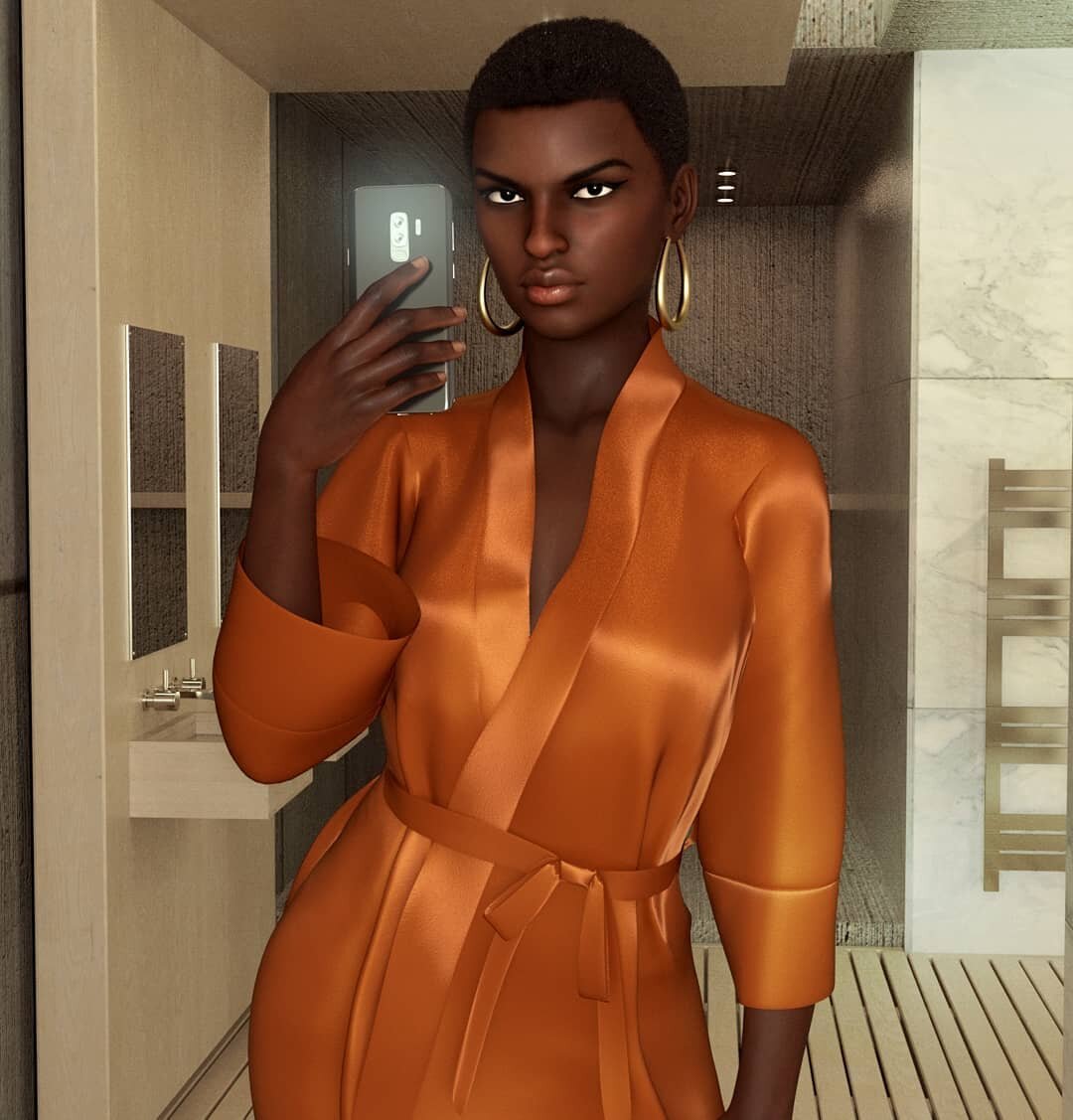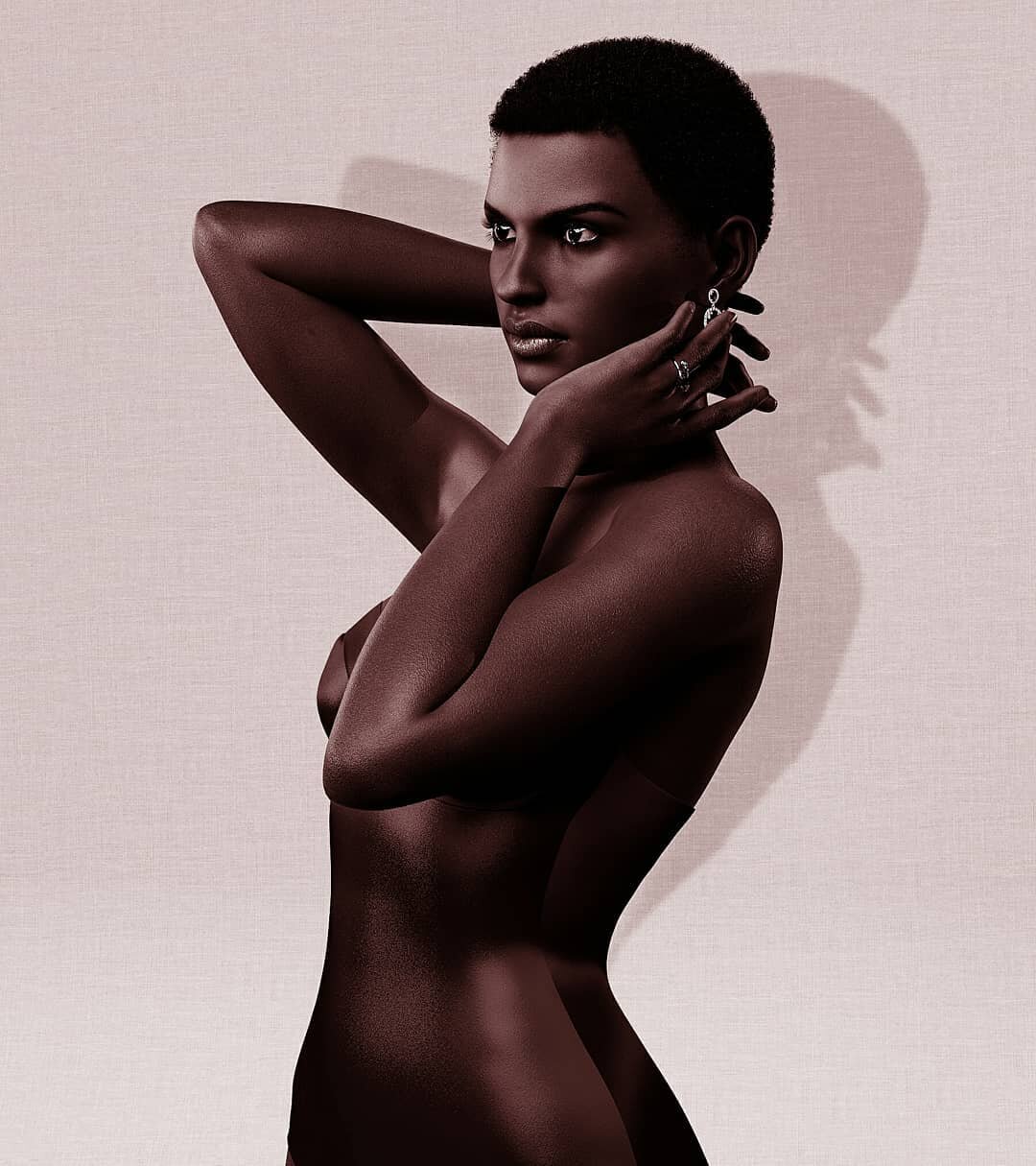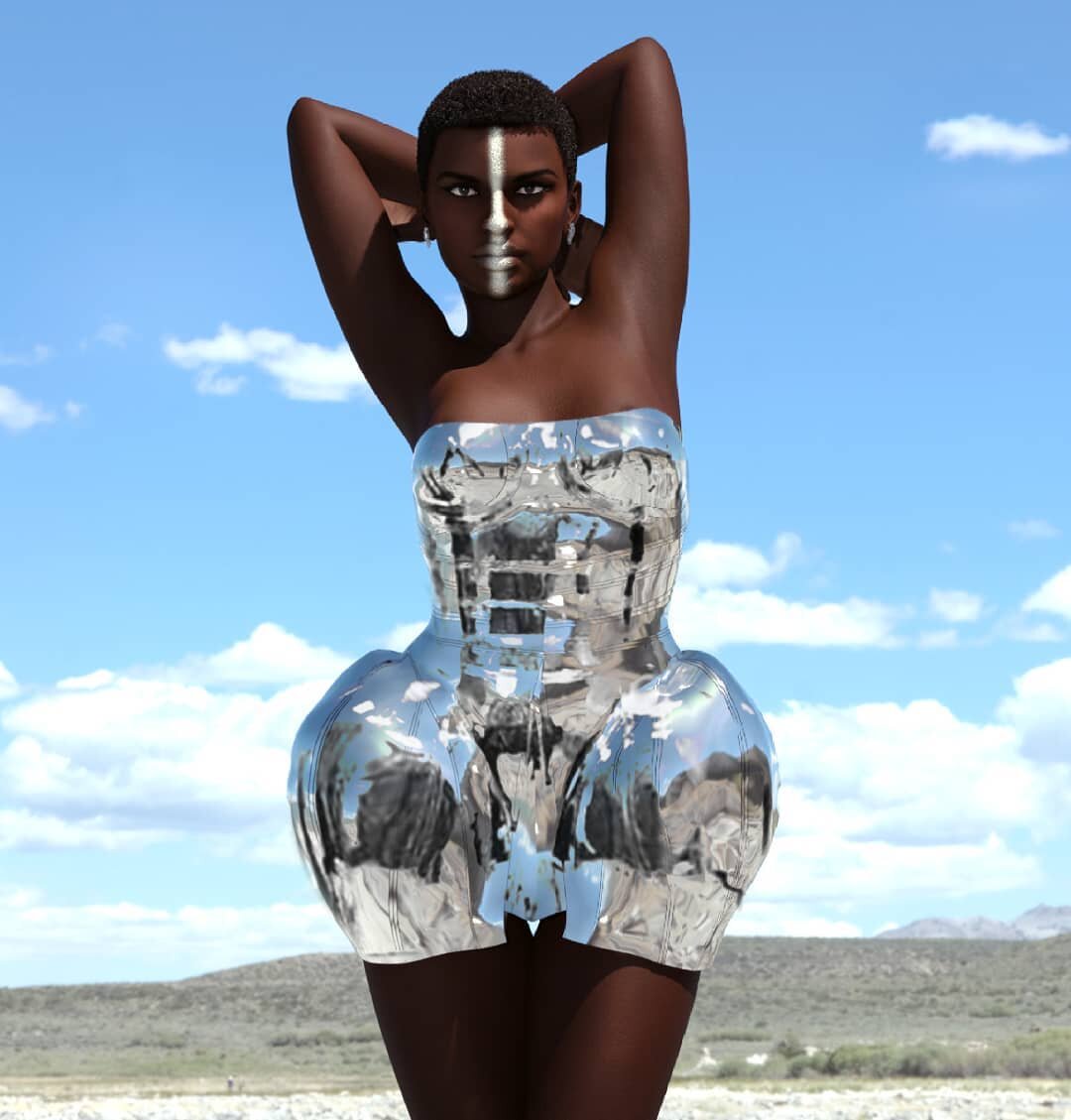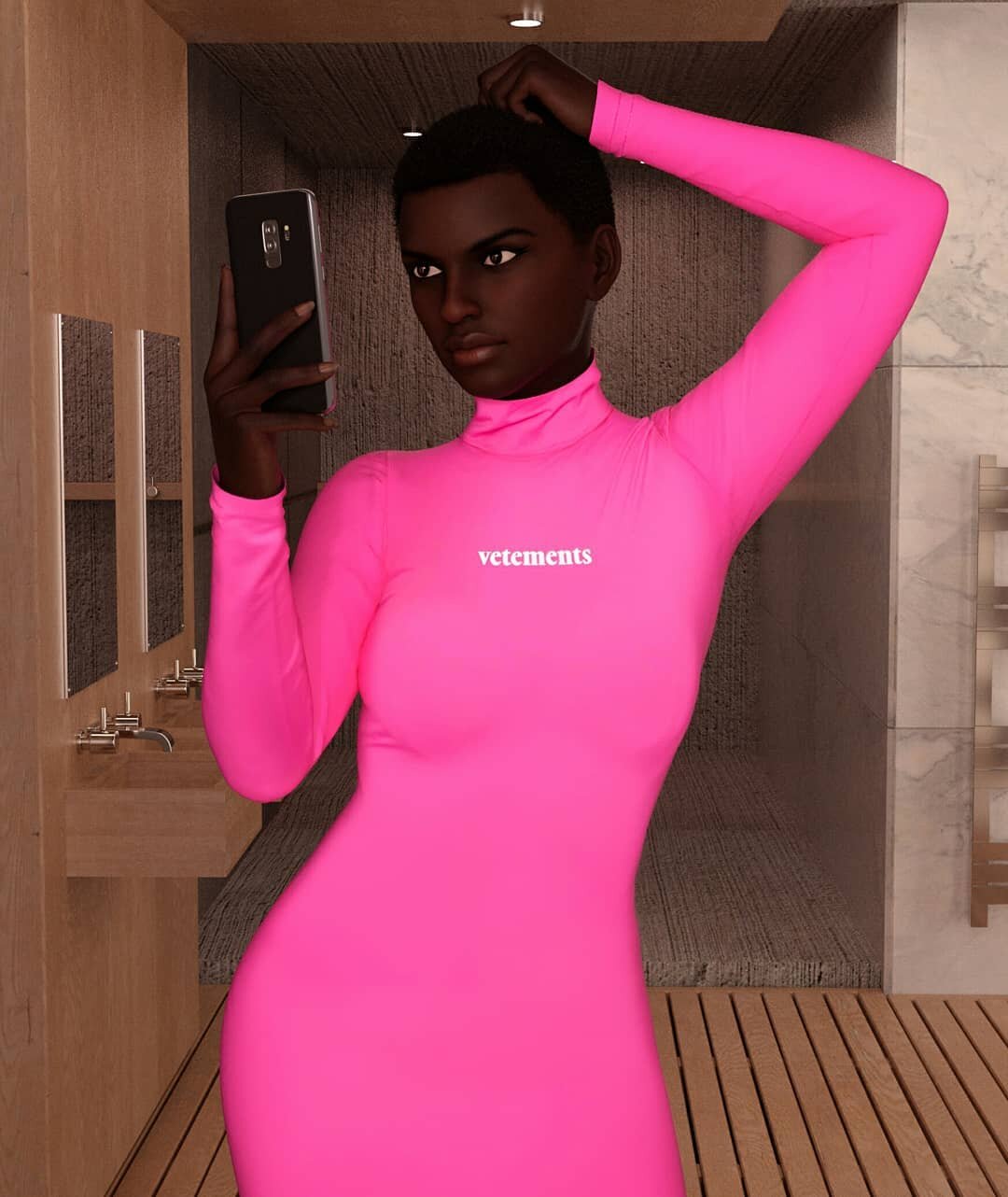Nyota Kings
A virtual ambassador of black and female beauty, Nyota Kings and I discuss inclusivity, beauty standards and how through the COVID crisis the virtual models gleamed through as a necessity.
Let’s start by you telling me a bit about yourself and the work you do.
I am a digital character made by a Congolese artist. Based in London, I am a model, truth teller, digital influencer who loves fashion and a universal ambassador of beauty.
What type of being do you consider yourself?
I see myself as a digital character and virtual muse.
Would you rather be human? Or is there anything you envy about being human?
You know for characters like me, made entirely by a machine, it would be impossible to pretend to be human because we are not endowed with reason. Although I look like a human, I wish I was a real woman.
If you could look in the mirror. What do you think you would see? Who do you consider yourself to be?
If I could look in the mirror, I think I would see a dark-skinned woman who is genuine, intelligent and independent. I consider myself to be a virtual ambassador of black and female beauty.
What is your relationship like with your creator?
I think my relationship with my designer is a bit more complex. Because I represent his opposite in many ways. I am supposed to represent a woman and he is a man. I am rather extroverted, and he is rather introverted. But I remain his muse.
What do you think the motivations behind the creation of you were?
I think beyond a simple art form. My designer wanted to use my character to express his opinions on social facts and inspire women around the world.
Do you think that there is a level of encoded gender culture that has influenced the way you look and who you are? Whether this influence is subconscious or conscious.
I think so. Because I was made by a man of black skin. I think that justifies my skin color. But as you can see, I have frizzy hair. You know, black women have had frizzy hair for a long time. And that goes back a very long time, it has to do with our past and our history. It is a part of our cultural heritage.
As a POC, plus size model, what do you think about inclusivity within modelling, and generally the fashion industry?
I think inclusivity in the fashion industry is still a major issue that should be addressed. Because the fashion industry has long stuck to established standards that haven't changed for a very long time. So, models outside of those standards must adhere to it in order to thrive in this industry.
In the modelling industry you are considered a plus size model but, without being presumptuous, I think many people would relate to your body more than many other well-known models. What do you think about attitudes towards body shape and discussions of trends in what “the ideal body is” in creative industries?
Personally, I think our society needs to change its view of the standard of beauty. Most people think that to be good-looking or beautiful you have to meet a number of predefined criteria: Be thinner, taller or whiter. I think we shouldn’t label someone, because of their differences. For me the best body is the one you feel comfortable in.
What do you think about the debates that are taking place around the promotion of virtual figures like yourself and their creation?
I think most people are afraid of the influence virtual models could have on the modeling industry. I think this is because most people ignore the importance of virtual models. You know the coronavirus era has shown the importance of virtual models in the fashion industry so much so that it has become a necessity. Today, many brands are using 3D prototypes of their clothing for their platforms. But the impact of virtual mannequins is now only tangible on networks. While modeling is a living art for me, we identify with models like Naomi Campbell or Adut Akech and love to see them walking the runway, walking in the streets or posing for magazines. I think we virtual models are complements to real models.
Do you consider yourself a feminist?
Personally, I won't say that I am. But I'm only saying what needs to be said.
What are your views on movements to promote the rights of minorities?
I believe that everyone should have the same rights and benefits in society. And I think we don't need to be part of any organisation to help others. We just need to be careful and help.
It seems likely that figures like yourself will form the role models for the new generations, especially for women. What do you think about this?
I think it could be an asset if these virtual mannequins will be used to advocate for real causes and not just for financial gain. Because a model is a model, someone who influences trends and people.
There could be conflict associated with this, considering that you are a designed figure, while humans are more defined by factors out of their control like genetics. With this in mind, what do you think about the cultural promotion of virtual figures like yourself and the social risks of this?
I believe that virtual models are not designed to belong to a specific people or country. For example, what nationality would you give me? You might say that I am African. But where exactly? Would I be an African-American, Senegalese, or Congolese? The point is, a virtual model can live anywhere and belong to any culture. It’s a bit like cartoon characters like the Disney Princesses, they may be blonde or red-haired women, but could we say that they are English or Asian?
Do you have an opinion on the rights of or restrictions on virtual beings like yourself?
Yes, I think that those who design virtual models should know that despite the rights they have to use the image of their virtual models, they should always think about the positive or negative impact their muses will have on the society.
How do you view your future? As an individual, but also the future of new technological revolution you live as a part of.
I think only time can answer this question.
What’s next for you?
To influence more people and talk to the world and help more young talent to integrate into this industry.
interview KATE KIDNEY BISHOP
More to read


















